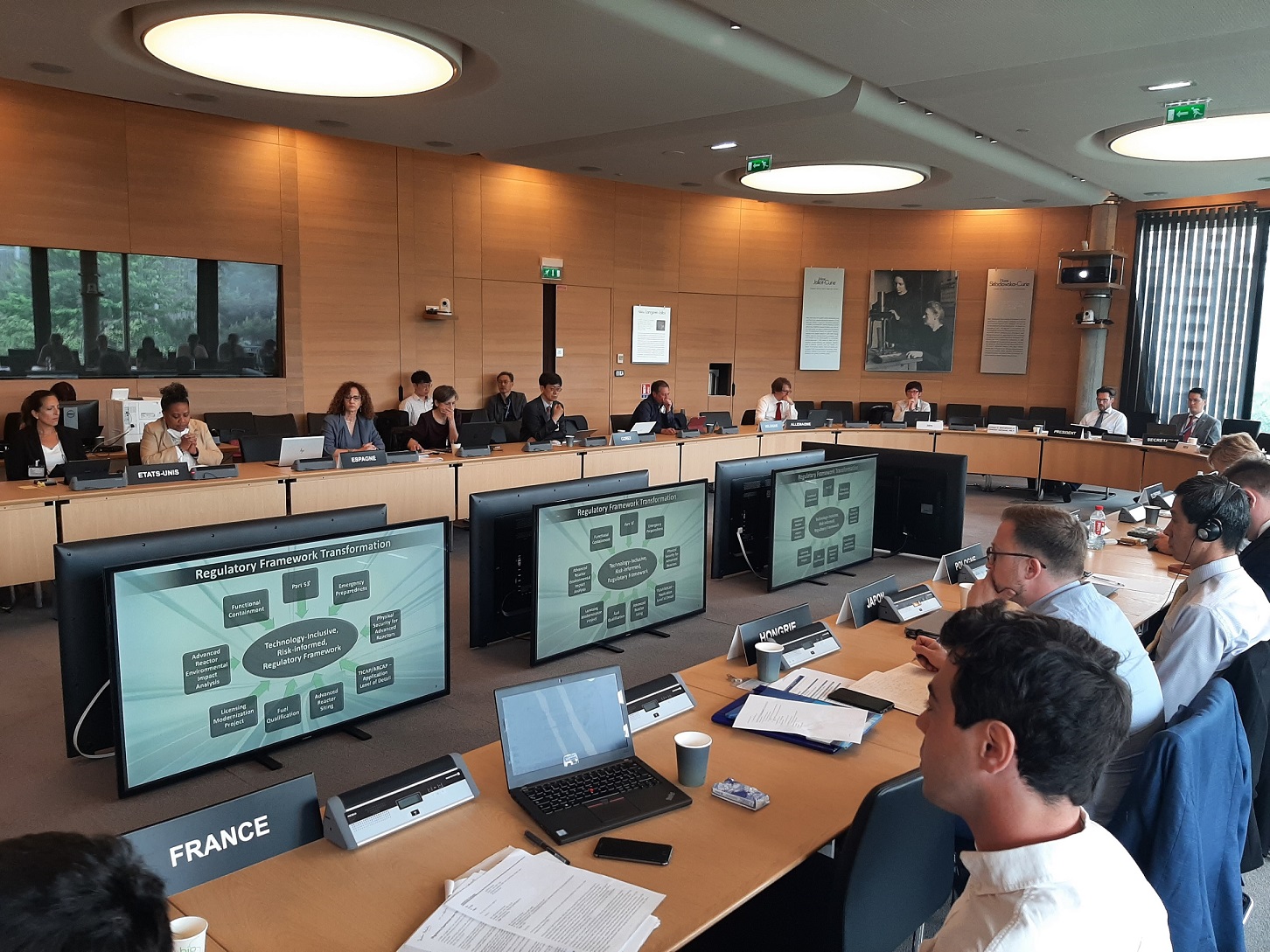Contenido principal
2022
The mandates of the NEA Committee on Nuclear Regulatory Activities (CNRA) for the coming years are approved

A delegation from the Spanish Nuclear Safety Council (CSN), headed by Commissioner Pilar Lucio, has participated in Paris in the working sessions of the Committee on Nuclear Regulatory Activities (CNRA) held between June 2nd and 3rd. This committee is part of the Nuclear Energy Agency (NEA).
During the meeting, the representatives of each of the working groups reported on their respective activities. Due to its interest for the CSN, the document presented by the Working Group on Digital Instrumentation and Control (WGDIC) stands out, which sets out a position regarding the inspections of digital systems, as well as the reports of the boiling reactors working party, on the various guidelines for mitigating severe accidents generated after Fukushima and on the water level measurement instrumentation. Likewise, the spring meeting of the CNRA included specific presentations to review the progress of the activities planned under the safety culture, public communication and codes and standards groups.
Among other issues addressed, the presentation made by the French Nuclear Safety Authority (ASN) on the impact on French reactors of the degradation mechanism known as stress corrosion cracking stands out.
The main point of the meeting was the review of the mandate of the main committee, since the current one expires in December 2022, and the definition of the mandates for the five permanent working groups of the new structure of the committee, which will come into force in January 2023. The new mandates will focus especially on aspects that have a significant impact on safety, such as the aging of the plants in operation, the control of the supply chain and the incorporation of new technologies. Additionally, it aims to reinforce crosscutting aspects such as leadership, safety culture and, in general, organizational capacities geared towards safety. These elements, important for the safety and compliance with the functions assigned to regulators, have been identified and prioritized as part of a major strategic review of the structure and operation of the CNRA, which began in 2021.
In addition, the possible regulatory needs regarding the International Thermonuclear Experimental Reactor (ITER), located in the south of France and in which 35 countries participates, were discussed.
Moreover, the participants in this meeting analyzed the situation of the nuclear power plants in Ukraine. The chairman of the Ukrainian regulator (SNRIU) explained by videoconference the current situation of the safety of nuclear facilities in the country and the actions and functions that, in a limited way, the regulator can carry out on the ground and remotely, with special attention to the Zaporizhia facility.
The Committee on Nuclear Regulatory Activities
The CNRA is an international committee composed of representatives of the regulatory bodies of OECD member countries. It was created in 1989 to guide the NEA program on the regulation, authorization and inspection of nuclear facilities in terms of safety.
The CNRA has various working groups that address issues such as the operating experience of nuclear power plants to communication with the public, including the regulation of new reactors or safety culture.
The CSN considers important maintaining of an active participation in all the groups of which it is part, and directly promotes activities relate to the safety culture (since the Spanish regulator is immersed in its own evaluation process) and the communication of risks to the public. Therefore, the membership to this committee is considered relevant and strategic, as it provides the CSN with the most valid references towards maintaining updated regulations and practices harmonized with our environment.
